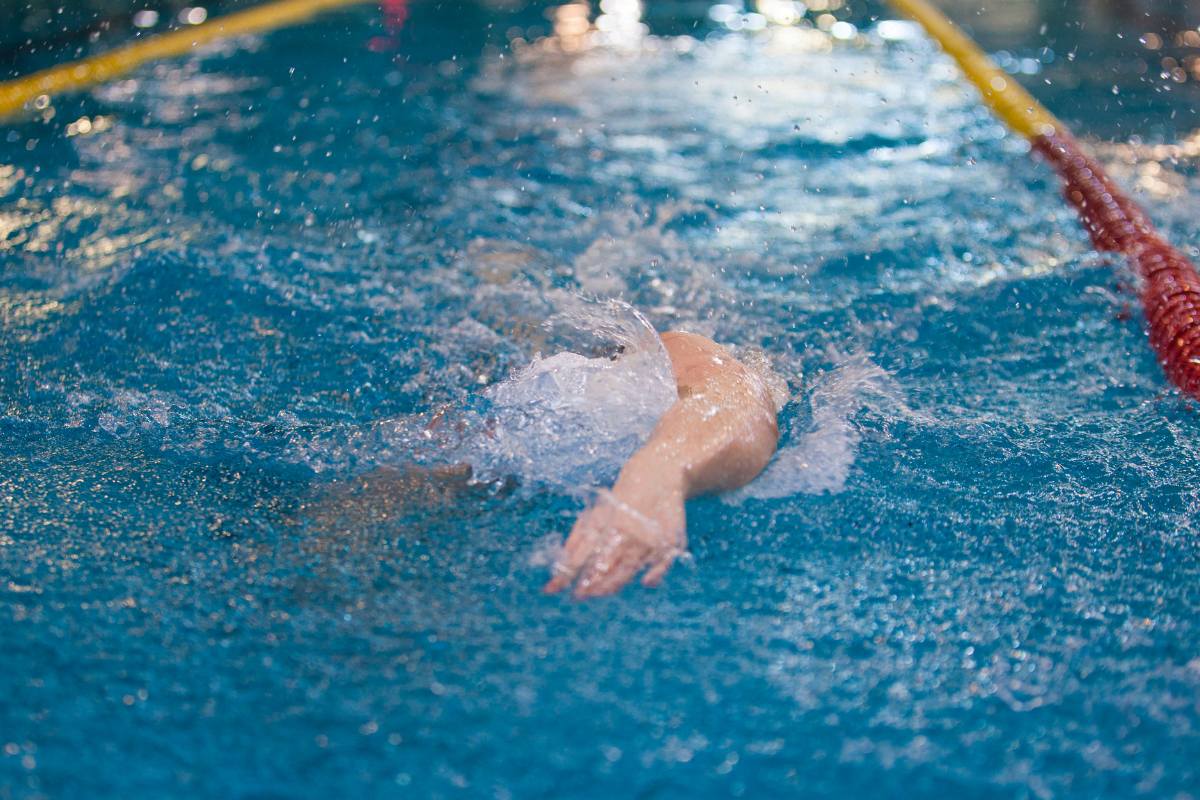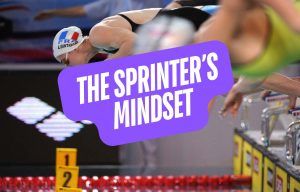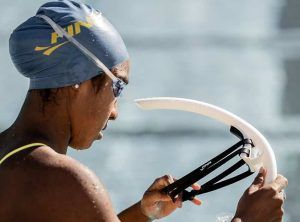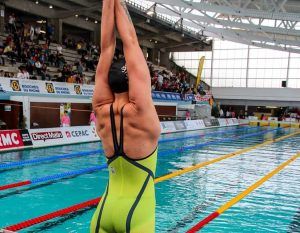Swimmers often excel academically, proving that success in the pool can translate to success in school. Here’s a look at why swimmers kick fast in the pool and kick butt in the classroom.
The swimmer-student lifestyle is no joke.
Up early, long workouts, longer days, and late nights studying and finishing assignments.
But while it can feel challenging, and at times even overwhelming trying to squeeze more minutes out of your day, there are some serious benefits of being a swimmer-student.
From being a time management ninja to achieving higher overall grades (yes, seriously), there are lots of reasons that swimming can help you crush your grades and your personal best times.
Let’s dive right in with the six reasons that swimmers do better in school.
Swimmers are time management wizards.
Balancing school and swimming is challenging, and requires planning and time management to address the tension between the demands of both.
After all, there will be periods during the year when swimming will require more of your physical energy and focus (training camps, for example). During other stretches of time, school will be the primary focus (i.e., exams).
Navigating this tension, and running a daily schedule to plan meals, transportation to/from school and swimming, and implementing a schedule for homework and studying is a vital skill that will pay off long after you leave the pool.
Sometimes I look back on the schedule that I held at some points during high school—wake up at 5am, go to the pool, swim for 2hrs, walk to school, walk back to the pool, swim for 2hrs–and wonder how I managed it.
But make no mistakes: performing these types of Herculean days will make you realize just how capable you are and how much energy and effort you can schedule into a single day.
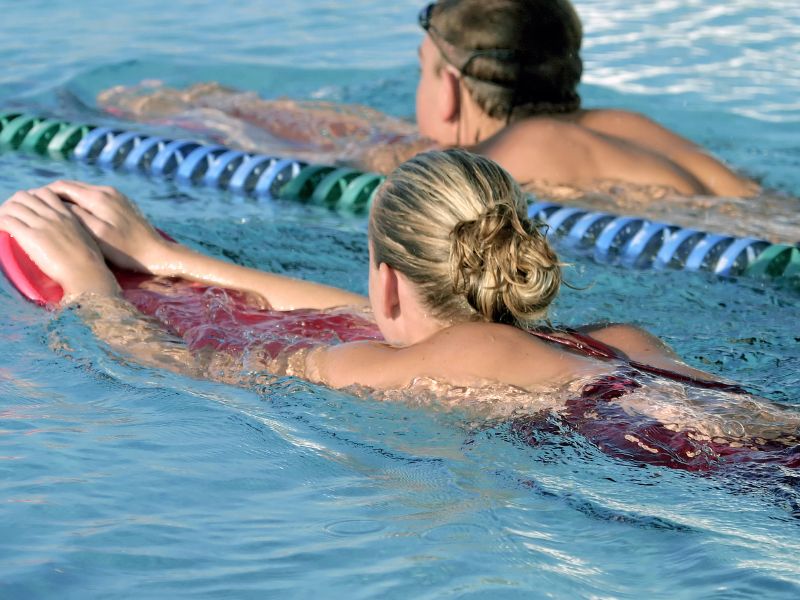
Swimmers are highly disciplined.
Breathing patterns. Kicking out past the backstroke flags. Showing up to the pool 15 minutes early to do your pre-hab.
All of these little tasks over the course of a swim practice and season are doing more than sculpting an awesome swimmer, they are also helping you build iron-fisted levels of discipline.
You become a swimmer and a person who does the tasks set ahead of them.
This increased level of discipline ripples outward across the rest of your life, particularly in the classroom.
Assignments are less likely to get missed. Exams are prepared for. And you stick to your commitments, even when on a time crunch or when you are physically cratered after a massive distance workout at the pool.
Swimmers learn epic levels of discipline that can be deployed elsewhere in life, particularly in school.
Swimmers get better grades.
Swimmers are among the best performing athletes when it comes to GPA.
An analysis of first-year NCAA students, published by NCAA Research, had swimming at #4 for grade point average (GPA), with men averaging 3.55 and the women averaging a whopping 3.70.
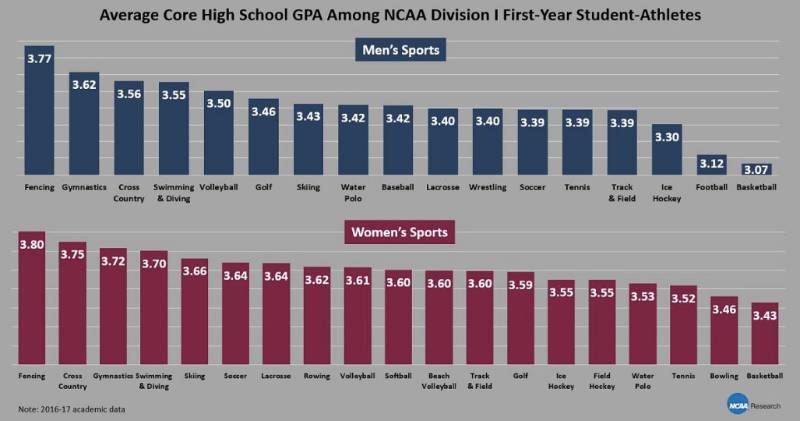
Only gymnastics, fencing and cross-country performed better, and not by much.
While the difficulty of balancing school and swimming can be difficult, there is plenty of evidence at the high school and collegiate levels that you don’t need to sacrifice either to excel.
School is an outlet for swimming (and vice versa).
Swimming and school, while they seem like they can be at odds when it comes to competing with our schedule, are actually very complimentary in terms of providing perspective and context for one another.
At the pool, you can turn off the exams, assignments and lectures to focus on your breathing, swimming with great technique, and giving a killer effort.
When you go to school, you can turn off stressing about your taper, worrying about the Big Meet, and earning the “feel good hormones” typical of a great swim workout.
Which can help you place your swimming into context, building resilience and helping you tackle the challenges of sport, including setbacks and injuries.
A study published by researchers at the Centre for Olympic Studies and Research at Loughborough University found that having competing outlets helped athletes “put their training and performance into perspective.”
While they do compete for your time and energy, school and swimming end up being outlets for one another, helping you perform better in both.
Swimmers are less likely to drop out.
Swimmers, and this goes for most student-athletes, reap the benefits of lower drop-out rates and increased attendance when combining sports and academics during high school.
A study published by the University of Kansas found that participation in sports during grades 9-12 was positively correlated with a higher percentage of school days attended and higher graduation rates.
Other research published by the NCAA on the academic progress rate (APR) of student-athletes—which evaluates retention rates, which lead to how many student-athletes graduate—had swimmers consistently near the top.
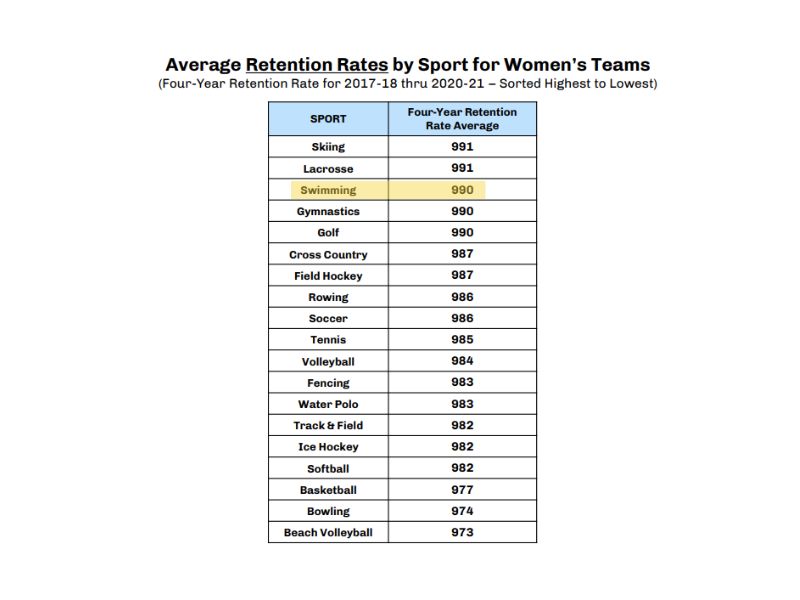
The pool athletes, both male and female, outperformed the major sports, including soccer, football, baseball, basketball, and wrestling.
The dedication, discipline, and time management you learn in the pool means you are less likely to quit on your scholastic endeavors.
Swimmers read splits like an accountant.
One of the things you notice on your journey as a competitive swimmer is that you become highly adept at reading and understanding splits.
Some of the common calculations that circle around the swimmer brain include tallying up stroke counts, multiplying splits, and even finding creative ways to count reps and sets to illustrate progress.

Some examples:
- “If I average 28 strokes per lap in a 50m pool, that means 56 strokes per 100m, or 14 strokes per 25.”
- “I averaged :14 per 25 on that race pace set… So basically I am totally capable of swimming a :56 in a 100m from a dive.”
- “I’ve done 8 reps of this set… Four more and I am 75% completed the set.”
- “Five times 12x 50 … that’s like nine million 50’s.”
And so on.
Swimming refreshes you mentally.
Swimming is hard and can even be cruel. It can be unforgiving at times, particularly when you come up short on a medal, cut or personal best time by hundredths of a second.
But the black line is more than just a taskmaster. It’s an opportunity to unplug mentally from the fast-paced frenzy of life, whether that is the cascade of social media notifications on your smartphone to the never-ending pile of papers and assignments on your desk.
A study published by swim gear manufacturer Speedo surveyed over 940 swimmers and found that 74% agreed that swimming released stress and that 70% found that swimming helped them feel mentally refreshed.
Yes, finding the time to excel in school and swimming will feel like trying to fit into a tech suit that is three sizes too small at times, but being able to hit refresh on your mindset on a daily basis will help you excel in the classroom.
For an hour, sometimes two, you can completely unplug your brain and get a serious mental break from the stress of schoolwork and “real life.”
The Final Lap
Like many, when I was a young age grouper, I always imagined that having 24 hours per day to devote to my swimming would make me a superior swimmer.
That if all I had to think about and focus on was the pool, my swimming would see no limit.
But getting older made me realize how much this was not the case.
School provided a “break,” both physically and perhaps most importantly on the mental front, that allowed me to push things further and faster in the pool.
Swimming also encouraged better study habits and time management which helped me do better in school.
Swimming and school don’t necessarily need to be at odds with each other, even though it can certainly feel that way at times.
Manage your time, build a schedule, maximize energy on the things that matter, and excel off the blocks and in the desk.
More Articles Like This
25 Things You Learn Becoming a Competitive Swimmer. Swimming is more than just shave-downs and PBs. Here are some of the key lessons you’ll learn in the pool.
9 Health Benefits of Lap Swimming. Swimming is a way to get in shape, strengthen your lungs, and reduce stress. Here are more of the unique benefits of swimming.

